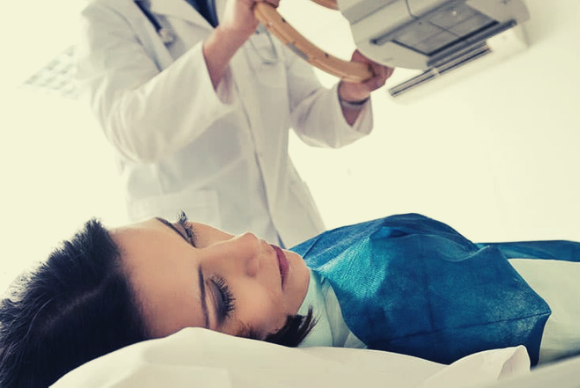How To Take Care Of Your Vision
Eyes are one of the most important sense organs which allow us to see this beautiful world. A good vision is something which we all must maintain so that we never encounter any eye-related problems in the future.
ILS Hospitals would like to present some valuable tips for healthy eyesight. Without any further ado, let’s take a look at them.
1. Consume more eye-friendly foods:
Vitamin A and Omega 3 fatty acids are crucial for good eye health. For healthy vision, we have mentioned some foods below:
-
Cashew nuts
-
Fish
-
Eggs
-
Kidney beans or Rajma
-
Almonds
-
Spinach
-
Carrots
-
Oranges
-
Peanuts
-
Black beans
-
Dairy
2. Get plenty of sleep:
After prolonged hours of working, our eyes tend to get tired. Make your eyes rest by sleeping for 7-8 hours every night. It will make your eyes healthy and will improve vision in the long run.
3. Do not rub your eyes:
We all tend to rub our eyes vigorously when a foreign irritant troubles our eyes. To say the least, it is surely not doing any good to your eye vision, so never rub your eyes. Try washing your eyes with plenty of cold water instead when a particle goes inside your eyes.
4. Use good quality eye cosmetics:
Invest in quality eye makeup products so that you reduce your chances of encountering any allergic reactions. It is always advised to do a patch test before trying out any new product that’s related to your eyes. Also, practice good makeup hygiene, like removing your eye makeup before dozing off to sleep and cleaning your eyeshadow brushes after every use.
5. Wear UV protection sunglasses:
For a healthy vision, protection from harmful UV rays is unavoidable. Wear UV protection sunglasses whenever you’re outside in the sun.
6. Use Computer glasses:
To protect yourself from Computer Vision Syndrome opt for Anti-Glare Computer glasses.
8. Install blue light filter on your electronic devices:
To protect your vision, it’s important to take concrete steps. Since our life is surrounded by smartphones and other electronic gadgets, we should install a blue light filter or software on all our electronic devices.
9. Visit an eye specialist regularly:
Regular eye checkups from a good eye specialist will ensure that your eyes do not suffer from any vision-related problems and you receive timely medical help when needed.
You can book your eye checkup appointment from ILS Hospitals in Kolkata and Agartala.
10 signs that indicates your child might have autism
In simple words, Autism (Autism Spectrum Disorder) is a neurological spectrum disorder in which the person lacks basic communication (both verbal and non-verbal) skills and social skills. There is no obvious reason behind autism but it is believed by many psychiatrists that ASD in children happens due to heredity, genetic disorders and deformity in the brain structure.
Children show signs of ASD after age 1 or 2 so it’s important for the parents to observe their child’s strange signs. The signs that might indicate that your child is autistic are as follows:
-
Prefers to always stay alone: It’s very odd for a child to prefer being alone than being in the company of other children. Autistic children live in their own world and does not know how to make friends and socially interact with people.
-
Inflexible nature: If your child follows a strict routine even at such a tender age, there is nothing to be proud of because it is a warning sign of ASD. Children with autism religiously follow their fixed schedule and have difficulty while dealing with even the most minor changes in their routine.
-
Repetitive behaviors: Your child may indulge in repetitive behaviors if he or she suffers from autism. The repetitive behaviors include- repeating words or phrases, lining up toys, incessant rocking, staring at lights, twirling, watching moving objects and so on.
-
Does not like physical affection: If your child does not like to be cuddled or even given a pat on the back, or be embraced when upset, it may indicate autism disorder.
-
Disinterested, unaware and unresponsive: A very unusual sign of autism is no eye contact which is seriously worrying for many parents. If your child always seems detached from the world and does not respond to you at all and appears to you deaf, chances are your child has autism.
-
Robot-like personality: Observe whether your child speaks in a flat robot-like tone with no emotions, has atypical posture and if walks on tiptoes.
-
Obsessive behavior: If your child has an obsession and special interest for certain topics and always craves for precise factual information, it can be a sign of ASD. OCD (Over- Compulsive disorder) and Autism go hand in hand so do watch for such signals and talk to a child psychiatrist.
-
Highly unemotional:Autistic children do not show even the basic human emotion in their speech, facial expressions and do not understand anyone’s feelings nor can relate to them. They may look aloof and cold to the entire world but the simple fact remains that they are poor at expressing themselves.
-
Self-harming behavior: Notice if your child practice self-injurious behavior like headbanging, self-scratching, hair pulling and face or head-slapping. Self-harm behavior is harmful and requires medical attention so consult a paediatric psychiatrist if your child physically harms him/herself.
-
Meltdowns: If your child has frequent meltdowns, it can make your life troublesome. There is a difference between normal tantrums and autistic meltdowns, so do not confuse the two and seek professional help, if needed.
Thus, if you notice the above-mentioned signs in your child, consider consulting a child psychiatrist without any delay. We, at ILS Hospitals, have trained and compassionate psychiatrists who will provide your child with the supportive care and counseling needed to better his or her life.
Guidelines To Follow Before Undergoing X-Ray
Medical science has evolved drastically over the past few decades. Advanced radiology is one such crucial aspect that plays an important role in the overall treatment process. The diagnostic technique we all had undergone at least one in our lives is the x-ray. X-ray is an imaging technique that uses ionizing radiation to pass through the body and capture images accordingly. It is mostly used to determine the extent of bone and joint damage on a recommendation from orthopedic clinics, but it also can be used to evaluate certain kinds of a pathogen-based health condition or to study any structural deformities of some organs. Let’s go through the guidelines you need to follow before undergoing an X-ray imaging.
Read more – All About X-Ray Tests And Its Scope
X-ray can be done for many organs and thus the actual guidelines may vary from case to case. However, in general, the following guidelines are to be followed for any x-ray imaging.
1. X-ray diagnosis is carried out either in the doctor’s chamber, diagnostic center or the diagnostic section of multispecialty hospitals. So, the patient must reach the spot, preferably a little in advance.
2. The patient needs to remove all the pieces of jewellery, eyeglasses and accessories like watches, cell phones etc. outside the radiology chamber.
3. The patient needs to inform the radiologist or the doctor beforehand, in case they have any surgical metal implants currently on them. These include any orthopedic metal joints, pacemakers, surgical mesh and wiring etc. Females patients also need to inform in case they are currently pregnant or even suspecting the possibility. They also must inform if they have surgical contraceptive implanted currently.
4. The patient needs to undress and wear a gown on the region that is supposed to have an x-ray. The patient are provided with a gown by the centre.
5. The patient might be given some contrast medium in certain kinds of x-ray tests. For that, they need to receive an injection or have to swallow the medium orally.
6. The patient is then guided towards the machine and helped to be positioned in the correct posture.
7. When instructed, the patient needs to stay still and might need to hold their breath momentarily, in some particular cases. This step ensures the images do not get blurry and feature the accurate details effectively.
X-ray is a painless procedure that takes only a few minutes for orthopaedic and other diagnostic purposes but might need more than an hour for x-ray involving contrast mediums. ILS Hospitals offers accurate and advance X-ray scan for every medical need.
Importance Of Cath Lab and Cardiac Catheterization
Cardiac Catheterization Lab is an advanced diagnostic room equipped with several apparatus, which can help the technician to visualize the structure and condition of the arteries along with the chambers of the heart in order to detect the presence (and extent) of any abnormality. Let us understand its importance in details.
Cardiac Catheterization is a non-invasive procedure that uses a thin, hollow cannula to penetrate through blood vessels reaching the heart. The procedure involves using a contrast dye, and its effect can be seen through an x-ray imaging simultaneously. As this procedure uses a blood vessel originating from the wrist or leg towards the heart, it causes no trauma to the heart and its surrounding tissues at all. Thus, it is becoming a very popular diagnostic approach these days.
It is a crucial diagnostic approach for heart conditions involving a defect in cardiac muscle, coronary arteries or cardiac valves. It measures blood flow to the heart as well. During the cardiac catheterization, the pressure in all 4 chambers of the heart is also measured effectively. Simultaneously, some blood sample can be collected to evaluate the optimum oxygen level in each chamber along with the pumping capability of the heart. Apart from detecting any defect in the structure of the heart, it can also extract a small sample of cardiac tissue for biopsy.
Coronary angioplasty is performed during cardiac catheterization. Coronary angioplasty is a medical procedure that uses a catheter to resolve clogged arteries. It might use the inflating action of a balloon as well (a process is known as balloon angioplasty). Often it also employs the usage of a stent to stop the recurring of the problem in the future.
Being non-invasive in nature, it offers many advantages over its alternatives invasive procedure. Cardiac catheterization is extremely safe and involves almost no risk (only mild bruising on the puncture site). A few people might encounter some metabolism issue or itchy skin for a short period due to swallowing of the contrast dye, but it can be fixed with mild medication.
We, at ILS Hospitals, are proud to say that we have the first Cath lab in the north Kolkata. Our facility with this advanced diagnostic screening and expert technician offers the best treatment to people, suffering from several types of cardiac conditions.
To avail the Cath lab facility, contact ILS Hospitals Dum Dum at 033-40315000/01.
Adapt These 7 Healthy Habits to Keep Heart Disease at Bay
Heart ailments are one of the major causes of death all over the world. To address its importance, we observe the World Heart Day every 29th September. On this occasion, the Internet starts flooding with articles on various aspects of heart and cardiac emergencies and best heart hospitals. On behalf of the ILS Hospitals, we offer 5 effective tips regarding our very own pumping device, the heart.
Read more – 5 most common heart ailments explained by cardiologists in Kolkata
1. Say Goodbye To The Smoke
No matter if you smoke regularly or ‘only to deal with stress’, it causes plaque to build up in the arteries and can cause a heart attack in the future. Try to quit it this year itself for a better heart and overall health.

2. Attain A Healthy Body Weight
Do all you can to have a healthy body weight. A proportionate body ensures uniform blood circulation and mitigates the chances of having high blood pressure, up to a large extent. Moreover, the normal body weight will help you keep obesity-associated illness at bay, as a surplus.

3. Manage Your Stress
Let it be work related or family oriented, stress buildup is kind of inevitable in today’s world. Prolonged stress can cause high cholesterol and eventually towards an untimely cardiac emergency.

4. Eat And Live Healthy
Adapt a better diet and lifestyle to keep heart diseases away for good. Include lots of fresh veggies and fruits along with whole grains, low fat and lean proteins is a good start. Moreover, start exercising the at least 5 days in a week to keep the heart strong and healthy.

5. Avail Cardiac Screening
Almost every cardiac emergency have some symptoms that stay noticeable over a period of time. Addressing it at the right time can prevent many cardiac emergencies. On this World Heart Day, avail ‘Cardiac Care health check-up package’ at a discounted rate from all the units of ILS Salt Lake, ILS Dum Dum and ILS Agartala. It will help you detect underlying cardiac ailments if any.


So, adapt as many of them as you can, to have a healthy heart and an overall healthy living ahead.
In case, you are already experiencing some cardiac discomfort and assuming it is best to accept it as the natural aspect of life, take a break, cause most cardiac emergencies are preventable. Always remember, the golden words said by Jennie Garth rightly said, “It’s never too late to take your heart health seriously and make it a priority.”















